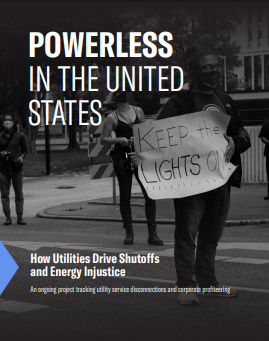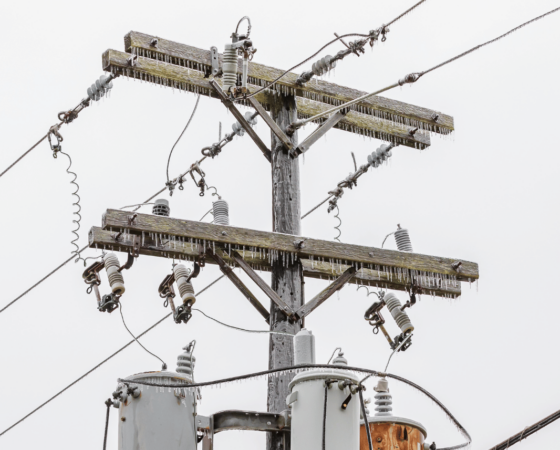This is an op-ed by a Mountain Association staff member that appeared in several Kentucky papers in April 2023.
The number of Kentuckians who had their power disconnected increased by 228 percent last year as compared to a 29 percent increase nationwide, according to a new study by the Energy and Policy Institute and Center for Biological Diversity. Kentucky’s average electric bills also increased 17 percent. Huge increases in disconnections and bills make it clear: current rates are unaffordable, especially as inflation soars.
In Kentucky, 1.3 million customers buy their electricity from Louisville Gas & Electric and Kentucky Utilities. LGE and KU’s parent company, PPL, made the study’s “Hall of Shame” as one of 12 most aggressive utilities in the nation for shutoffs. Customers in Kentucky were disconnected more than 52,000 times in the first 10 months of 2022, with LGE/KU accounting for more than 90 percent of these.
All told, PPL made 195,555 disconnections between 2020 and October 2022 while distributing $3.174 billion in shareholder dividends, or 153 times the total cost of preventing those disconnections. The “hall of shame” companies pay top executives around $6 million per year, or about 15 percent more than their peers, even though they only generate about half as much revenue.
While utility profits are minimally impacted by unpaid bills from low-income families, disconnection and reconnection fees cause a huge burden for Kentuckians that face them – and they can be life-threatening. Utility shut-offs have the greatest impact on vulnerable populations – the young, sick and elderly in low income communities. In the first quarter of 2022, more than half of US households earning less than $25,000 a year reported cutting back on basic necessities, such as food or medicine, in order to pay an energy bill, according to Harvard University’s Joint Center for Housing Studies.
Some legislators in Kentucky have recognized that disconnections during extreme weather are especially dangerous to vulnerable communities. House Bill 66, proposed during the 2023 legislature session, would have prevented utilities from disconnecting service during extreme winter and summer temperatures. It would have created a 30-day grace period protecting Kentuckians from having their utility shut off if a doctor or service provider certifies that a disconnection would threaten their health and safety, and prevented utilities from disconnecting if a customer pays 10 percent of their bill or $200, whichever was less. However, that legislation did not pass.
The measures proposed in House Bill 66 align with the recommendations outlined by the Energy and Policy Institute and Center for Biological Diversity. The study recommends permanent state moratoriums on utility shut-offs if customers meeting established poverty criteria cannot pay their bills, or temporary moratoriums for extreme weather. It also recommends reconnection criteria that prioritize low-income communities when climate disasters cause power outages.
The study recommends that states adopt strong accountability mechanisms for utilities to focus on performance, and that states make utilities bear the cost of fossil fuel price volatility instead of allowing them to pass costs on to ratepayers. Fuel price volatility was a huge issue in Kentucky this winter. In Olive Hill, for example, customers recently experienced jumps of up to $400 on their bills due to fuel adjustment charges. While major utilities in other states are focusing on expanding the renewable energy sources feeding their grids to bring down these fuel costs, LGE and KU recently proposed investing $1.2 billion dollars in two new natural gas powered facilities. That kind of continued dependence on fossil fuels increases the likelihood that customers will be subject to ongoing fuel adjustment charges.
As extreme weather events become more and more common, we must place the interests of everyday Kentuckians ahead of high-paid utility executives and their investors. We need solutions like those outlined here, alongside policies and programs that help our families and businesses access energy efficiency and clean energy to lower our bills. We need our utilities to leverage unprecedented federal incentives, like the Inflation Reduction Act signed into law in 2022, to help us pay for the clean energy future that Kentuckians want and deserve. Finally, we need citizens to get involved with groups like Kentuckians for Energy Democracy, a citizen led effort to help fellow community members understand our immense collective power.
Chris Woolery is the Residential Energy Coordinator at the Mountain Association. He can be reached at chris@mtassociation.org.






